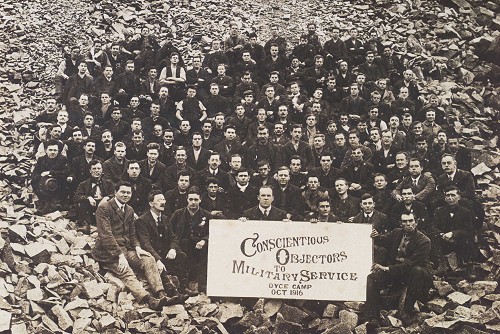Oxford ethicist attacks conscientious objection
Conscientious objection is guaranteed to give anyone who went to university in the 60s and 70s the warm fuzzies. It was the Everest of moral heroism. But times change. A recent debate in the Medical Journal of Australia features Oxford professor of ethics Julian Savulescu arguing that conscientious objection “is grounded in a dangerous moral relativism” and has no place in modern medicine.
 Conscientious objection is guaranteed to give anyone who went to university in the 60s and 70s the warm fuzzies. It was the Everest of moral heroism. But times change. A recent debate in the Medical Journal of Australia features Oxford professor of ethics Julian Savulescu arguing that conscientious objection “is grounded in a dangerous moral relativism” and has no place in modern medicine.
Conscientious objection is guaranteed to give anyone who went to university in the 60s and 70s the warm fuzzies. It was the Everest of moral heroism. But times change. A recent debate in the Medical Journal of Australia features Oxford professor of ethics Julian Savulescu arguing that conscientious objection “is grounded in a dangerous moral relativism” and has no place in modern medicine.
For many people, this seems shocking and his antagonist, Adelaide paediatrician Brian Conway takes the older line that “Respect for doctors’ right to conscientiously object is the ultimate safeguard against abuses of power, error and exploitation in medicine. It is the key safeguard of the doctor–patient relationship.”
The argument advanced by Savulescu, a well-known utilitarian, is based on the notion that a doctor should act in patients’ best interests and never harm them. “Justified conscientious objection is an objection to harming people. But harm and benefit are not in the eye of the beholder — they are grounded in a robust, morally justified concept of best interests and of moral status.”
The debate is fairly brief, so one can only presume that these interests and harms would be determined by some sort of utilitarian calculus. However, he does not discuss how moral status is determined – and this is at the heart of what sparks most appeals to conscientious objection – the abortion of unborn children.
Conway points out that denying a right to conscientious objection has the effect of turning doctors into technicians who do only what they are told to do. “Even though it is promoted as being anti-paternal, this model would still result in an unbalanced, authoritarian relationship, now with the patient holding all the power and the doctor reduced to mere technician, their autonomy refused.” ~ Medical Journal of Australia, Nov 7
Michael Cook
conscientious objection
- How long can you put off seeing the doctor because of lockdowns? - December 3, 2021
- House of Lords debates assisted suicide—again - October 28, 2021
- Spanish government tries to restrict conscientious objection - October 28, 2021
